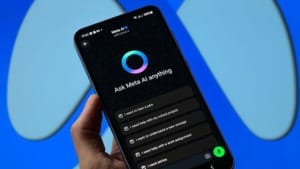VR game could help restore eyesight, say Japanese scientists
Japanese scientists are testing a VR game that could help restore eyesight by easing eyestrain and training eye muscles through play.

You may have grown up being told staring at screens would ruin your eyesight. But scientists in Japan are now exploring a completely different idea — that screen time, when used correctly, could improve your vision.
Researchers from Kwansei Gakuin University have created a virtual reality (VR) game aimed at helping people reduce eyestrain and potentially restore nearsightedness, also known as myopia. It’s an unexpected combination of video games and eye health, and the early results are promising.
Their study, released in February 2025 by the university’s Department of Science and Technology Studies, tested whether playing a VR game regularly could improve eyesight in people who spend a lot of time looking at screens. All participants in the trial showed signs of vision improvement after playing the game over several weeks.
The science behind the screen
The main idea behind the VR game is based on a condition called pseudomyopia, or false myopia. This occurs when the ciliary muscles in your eyes — the muscles that help you focus — become overworked and spasm. This often happens after long hours looking at phones, computers or other screens.
The scientists developed a VR game that acts as a type of eye workout. It’s designed to gently stretch and move your eye muscles to encourage them to relax and function properly. The game includes different visual tasks that require your eyes to adjust focus, hold steady attention, and work together to judge depth. These tasks mimic traditional eye exercises that are sometimes used in vision therapy.
Ten people aged between 22 and 36 participated in the six-week experiment. They all worked in the university’s computer science department and regularly used digital screens daily. At the beginning of the trial, each participant had a vision of at least 0.5 in both eyes, showing some level of myopia.
The participants were asked to play the VR game at least once every three days. By the end of the six weeks, each had improved their eyesight. The researchers believe this is a strong starting point, though they acknowledge that further studies are needed. They plan to test the game with a wider variety of people, including those from different age groups and backgrounds, to see if the same results can be achieved.
What the game looks like
The game is designed to be simple yet effective and might remind you of a digital eye test. Using a VR headset and hand controller, you are asked to push virtual targets away from you while aiming a laser at a series of moving symbols. These symbols, known as Landolt C rings, are commonly used in vision tests and require you to focus carefully to identify the direction of their openings.
Each time you aim correctly, the game responds with a “Hit,” if you get several in a row, you earn a “Combo.” The targets start close to you and then move further away, forcing your eyes to shift their focus constantly. This movement helps exercise the ciliary muscles by requiring them to adjust distance quickly and repeatedly.
Though the game is still in the testing phase, it shows that gaming and health can work together in new and creative ways. While it’s not ready to replace a visit to the optician, the research suggests that with more development and wider trials, a simple VR game might one day become a helpful tool for improving eyesight — especially for those glued to screens all day.
















